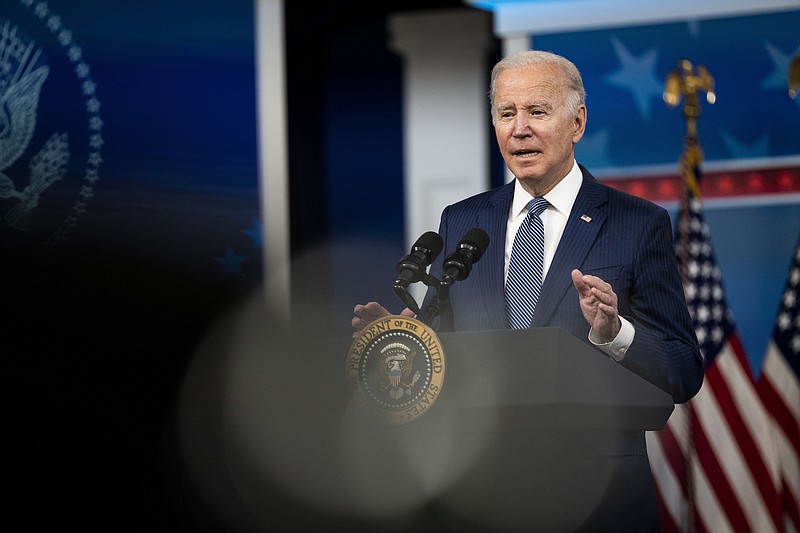Build Back Better - the Biden administration's effort to create a better future for America - is resting on a political knife edge. It's anyone's guess whether it will become law. What we do know is that to make it through Congress, it will have to weather a perfect storm of bad faith, bad logic and bad arithmetic.
First things first: Build Back Better is primarily a plan to invest in America's future. Roughly one-third of the proposed spending is on children: pre-K, child care and tax credits that would greatly reduce child poverty. Another third is spending to help restructure the economy to limit climate change. If you include the already enacted infrastructure bill, the Biden agenda is overwhelmingly future-oriented.
So how can anyone be opposed to making these investments?
I guess reporting conventions require that journalists pretend to believe that Republicans have good-faith objections to the Biden plan - that they're worried about deficits, or the effect on incentives, or something. But we all know that their main objection is simply the fact that it's a Democratic initiative, which means that it must fail.
Also, it would tax the rich and help the poor.
While the most important source of opposition to Build Back Better is simply the desire to see Biden fail while keeping the rich as rich as possible, there may be some sincere concern that the bill would increase budget deficits. Actually, it wouldn't have a significant deficit impact - the Congressional Budget Office says that the spending is almost completely paid for, and attempts to claim otherwise aren't credible. But even if the deficit did rise, why would that be such a bad thing?
I was struck the other day by Elon Musk's declaration that Build Back Better shouldn't pass because it would increase the budget deficit. Interesting fact: Tesla was founded in 2003 and had its first profitable year in 2020. That is, it spent 17 years spending more money than it was taking in, because it was investing in the future. If, as many executives like to say, the government should be run like a business, why shouldn't it be willing to do the same thing?
Again, most of the proposed spending would consist of highly productive investments.
Finally, there's a lot of talk about how Build Back Better might worsen inflation - talk that mainly seems to involve failure to do the math, for example by confusing decades with single years and failing to divide by gross domestic product.
It's true that the bill's $1.75 trillion price tag is, on the surface, a lot of money. But that's spending over 10 years, which means that annual outlays would be far smaller than the $1.9 trillion rescue plan passed earlier this year, or for that matter the $768 billion annual defense bill the House passed last week.
Also, much of the spending would be paid for with new taxes. Furthermore, you should never cite a big-sounding budget number without putting it in context. Remember, the U.S. economy is enormous. The budget office estimates that in its first year Build Back Better would expand the deficit by 0.6% of gross domestic product, a number that would shrink over time.
I'm not aware of any economic model suggesting that spending on that scale would make much of a difference to inflation. And because much of the spending would expand the economy's productive capacity, it would probably reduce inflation over time.
Is Build Back Better perfect? Of course not. But it's the best legislation we're likely to get for years to come. And claims that we should let this opportunity pass out of concern over fiscal responsibility or inflation are uninformed at best, dishonest at worst.
The New York Times
